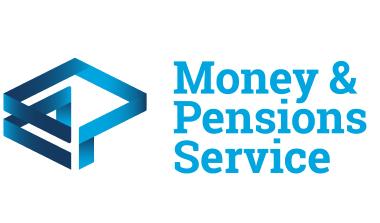How Children Learn About Money In A Digital World
Managing Your Money / Family HealthThe internet has transformed the way we can connect with friends and family living on the other side of the world, work remotely and transfer money with a few clicks of a button. Here the Money and Pensions Service (MaPS)’s Policy and Propositions Manager, Sarah Brenig-Croft, examines the rise of ‘digital money’ and its impact on financial education.
The rise of digital money
The internet has revolutionised the way that children and young people experience money. More young people than ever are using a debit card, purchasing items online, or using in-game currencies whilst playing online games. From everyday purchases to interacting with banks, digital payment methods are becoming ever more used and accepted.
This rapid digitisation of financial transactions has profound implications for children and young people’s financial education and the way that they understand and learn about money.
UK Strategy for Financial Wellbeing
The UK Strategy for Financial Wellbeing, coordinated by MaPS, sets out an ambitious goal of 2 million more children and young people receiving a meaningful financial education by 2030. A greater understanding of how the changing digital world influences and affects the way people interact with and understand money is key to informing the delivery of effective financial education to improve digital financial literacy – whether this takes place in the home, in school or in the wider community.
How children use and receive digital money
Pocket money
MaPS's Children and Young People Financial Wellbeing Survey 2022 told us that the shift towards increased digital financial transactions affects the whole family and starts young .
Compared to the 2019 survey, significantly more children and young people aged seven to 17 are getting their pocket money or allowance digitally, i.e. through bank transfer or through a pocket money app.
Over two thirds (68%) of seven year-olds receive their pocket money in cash but less than half (46%) of 11-year-olds do, and by the time children get to 17 only 28% get paid only in cash, while 58% are paid pocket money digitally.
Are children still using cash?
Whilst 75% of seven to 11-year-olds always or mostly pay for things in cash this falls to 27% of 16 to 17-year-olds. This shift away from receiving regular cash, particularly amongst older children, is likely to have an influence on how children are choosing to pay for things in shops.
We asked parents and carers about how their child pays for things in shops, such as if they tend to use cash or their own debit card. The results show that overall, 57% of children aged seven to 17 ‘always’ or ‘mostly’ use cash.
Paying for things online
The shift towards the use of digital payments is also seen in the proportion of children who are paying for things online such as apps, games or music. Overall 71% of children aged seven to 17 are paying for things online themselves, rising to 91% of 16 to 17-year-olds.
Adult supervision
Of those children who have bought online, 13% ‘always’ buy things online without any adult supervision, 18% do so ‘most of the time’ and 21% ‘some of the time’. This equates to 52% of children and young people buying things online without adult supervision, at least some of the time.
Debit cards and digital banking
The survey also highlighted that there has been significant growth since 2016 in both children’s debit cards and their reviewing a bank account online. In 2016, only 42% of children used a debit card, compared to 63% in 2022.
Likewise, only 31% of children were reviewing their bank accounts online in 2016, whereas in 2022 57% were doing so. Alongside this shift towards digital banking services, many children are not undertaking certain activities, for example going into a bank branch.
Even amongst the younger 12 to 15-year-old age group, many are accessing their accounts digitally suggesting the importance of continuing to develop age-appropriate digital financial tools to help children and young people manage their money well.
Young people and cryptocurrency
As part of our Children and Young People’s Financial Wellbeing Survey 2022, we asked 14 to 17-year-olds if they thought investing in cryptocurrencies was a safe way to make their money grow.
Whilst only 20% said they thought it was, 40% said they don’t know. Only 40% of 14 to 17-year-olds said it was false to say investing in cryptocurrencies was safe. This suggests young people have a great deal of uncertainty around the safety of cryptocurrencies.
There were also some differences between young people; boys were more likely to agree it was safe compared to girls. Young people living in low-income households were more likely to say ‘don’t know’ compared to those in high-income households; and a similar pattern was observed between those living in the most and the least deprived areas.
Dangers and risks
However, the literature review also highlighted some significant risks to children and young people, who are spending more time online, often unsupervised.
These risks include exposure to online fraud, cyber security threats, and the normalisation of financial risk-taking through the gamification of digital financial platforms. These risks are corroborated by work that the Child Financial Harms Consortium (led by Parent Zone) are doing in this field, to better understand and address the harms children might face online.
Parental digital literacy
An interesting dynamic has emerged where some parents have less knowledge and understanding of digital platforms than their children, leading to less supervision and increased risk of harm or damaging online practices.
There is a shift towards children and young people consuming more information online more generally, which can be a great way for them to get information, but there are also not always able to discern between what is real and what is fake, and the quality of the content being shown to them.









































